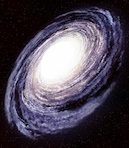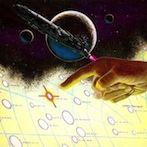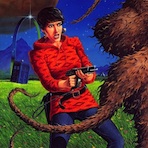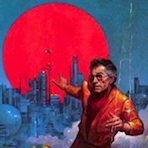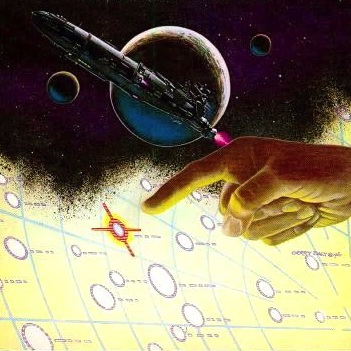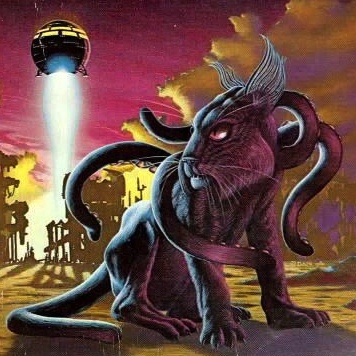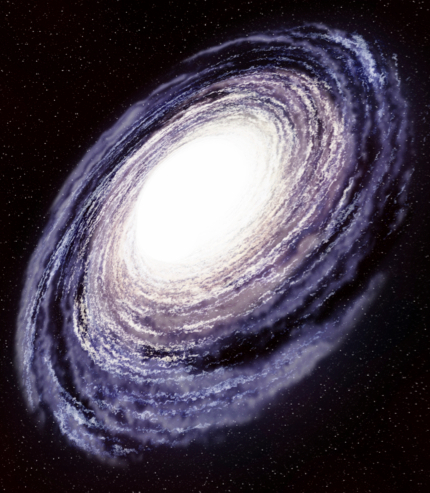this novel can be read here.
see Isaac's review.
Guest reviewer:
Denis Dubé
September 26th, 2010
Incomplete, But Definitely van Vogt
This not very well known Van Vogt book (written circa 1975) even to the die hard vanVogtologists — at least to those who can not read in French or Romanian, for the short novel was never published in English.
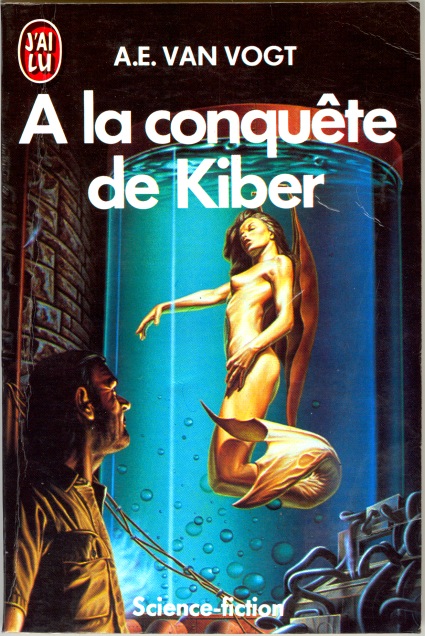
cover art © Barclay Shawn
I have set a goal to read all van Vogt's works, I discovered this book four years ago and being fluent in French, I felt enthusiastically obligated to order the book from published by J'ai Lu.
Once well into the first half, I decided to take on the job of re-translating the book back into English to get a general sense as to how it would read in its original linguistic conception.
It is of my opinion that though this is not one of van Vogt's best books, being a "late book," this is no surprise. I decided that I preferred it to The Secret Galactics (Earth Factor X) (1974) or The Anarchistic Colossus (1977) written during the same period.
My first impression is that this novel seems incomplete, as it probably was, but it is packed with van Vogt's characteristic typical mass of ideas and scene. This novel (or novella, only forty thousand plus words) has for instance, the elements of alien abduction, time dilations, and a Scottish android with psi.
Quick synopsis: Paul Craig, a 27 year old, a selfish alcoholic and womanizer with violent tendencies, is the inheritor of an aquarium. When he is made to sign over his ownership of the facility to his two assistants, he is abducted by aliens for the purpose of aiding in the overthrow of the King Garrent, King of Kiber.
Eltrain, the abductor, wants Craig (due to his observed violent behavior when drinking), to overthrow this King in order to control the aquatic planet of Kiber's greatest resource, a phenomenon called the "adlais" field that emanates from the aquatic planet of Kiber that has the effect of life longevity.
Craig is unaware of what is happening to him most of the time during the novel as he is on an extreme "need to know" basis. He is brought in and out of consciousness (unknown to him) periodically for battle training and such, therefore there is a dreamlike confusion as Craig instantly finds himself appearing back and forth on the interstellar ships the Shooting Star one minute and swimming on/in the planet itself the next (they have grafted gills onto his body, in order to enable him to breathe under water).
By the end of the book, Craig grows somewhat as a person and one wonders if the alien abduction actually occurred or was it all a nine year blackout as he bettered himself.
A very strange by enjoyable fast paced story indeed. There are a lot of inconclusive concepts. I must point out however that leaving issues unresolved is often a trait even in van Vogt's earlier works. Often he had commented in interviews, that he purposely leave items much to be worked out or speculated to his readers, claiming that they have the imagination and intelligence to do so. That said, I still believe the book should have been a little longer to better deal with some of the issues such as the nature of this "aidlai" field and so forth. The book unfortunately, seem to be a book that had been perhaps abandoned.
Denis Dubé, a French Canadian, lives in London, Ontario with his wife, who has the matching name of Denise.
For a living he does furniture repair for a retailer, and his numerous hobbies include writing short SF stories, painting ("watercolours, mostly"), playing bass guitar in a blues-based band called "Tipping Marucci & Dubé," and his newest interest is vegetable gardening ("you know you're old when…").
"My focus on life at this time is to have a perpetual positive attitude towards everything. This is a great challenge, but I do believe that it is possible. I like and respect simplicity. This too is a challenge. It appears our world is increasingly complex. I try to avoid its complexities, without completely abstaining from them (I do not carry a cell phone, for example)."
